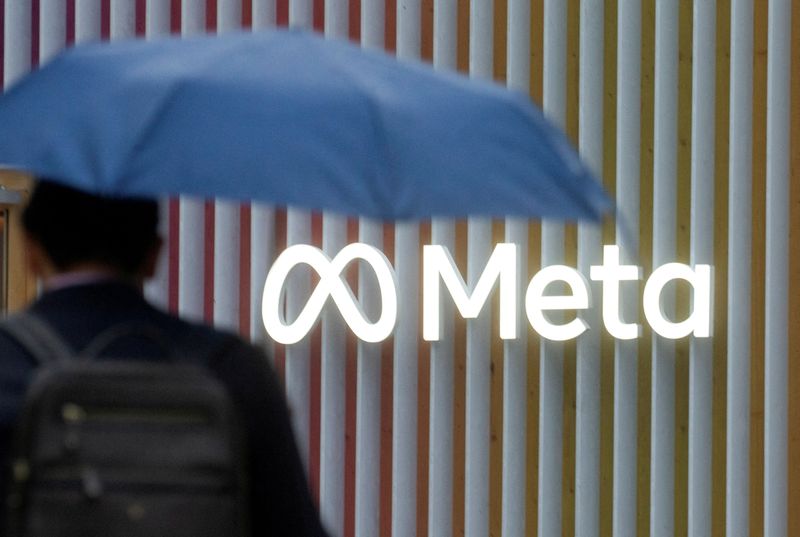Investing.com -- Meta Platforms on Wednesday issued better-than-expected guidance for the current quarter after reporting second-quarter results that beat analyst estimates on the top and bottom lines.
Meta Platforms Inc (NASDAQ:META) was up around 7% in premarket trading Thursday.
For the three months ended Jun. 30, the company reported earnings of $5.16 on a share on revenue of $39.07 billion, beating estimates $4.7 and $38.26B, respectively.
Daily active people, or DAP, was 3.27B, up 7% in Q2 from the same period a year earlier.
Capital expenditures (capex) were $8.47B in Q2, down from $6.72B in Q1.
Looking ahead to Q3, the company guided for total revenue to be in the range of $38.5B to $41B, or $39.75B at the midpoint, beating Wall Street estimates of $39.09B.
The sanguine outlook on revenue comes as the company lifted the lower range of its annual capital spending outlook to a range of $37B to $40B from $35B to $40B previously, but the total expense guidance for the full-year remained unchanged in a range of $96B to $99B.
The company said, however, that it "expect infrastructure costs will be a significant driver of expense growth next year as we recognize depreciation and operating costs associated with our expanded infrastructure footprint."
Analysts at KeyBanc Capital Markets reiterated an Overweight rating on META stock after the report and raised their price target from $540 to $560.
"We believe Meta's 2Q print reinforced the core business is seeing AI returns today while AI assistants and agents create returns over the medium term," they said.
"As AI creates more efficiencies for merchants around the world, we believe this can drive further share gains and support consistent 10%+ annual advertising revenue growth."
Similarly, Stifel analysts also lifted their target price on Meta shares from $550 to $590, noting that the elevated lower end of the capex outlook was the "only real wrinkle" from the print.
"It's hard to deny the increase in Capex is material, but we believe Meta's AI initiatives are paying off already (better engagement, advertiser tools driving incremental budgets), with more to come," Stifel wrote.
Yasin Ebrahim contributed to this report.
